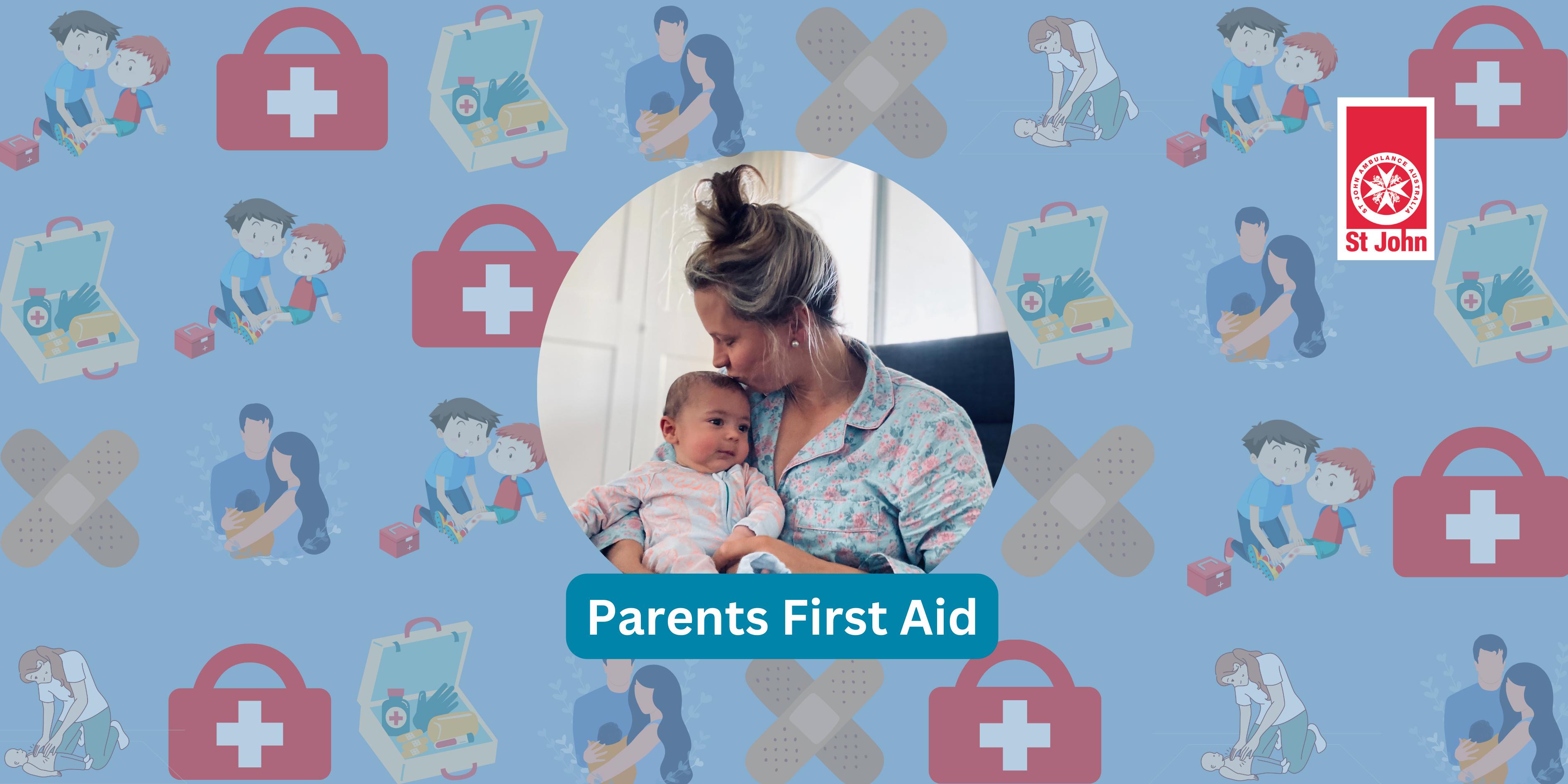Empowering Parenthood: The Vital Role of First Aid Knowledge for Parents

With 62,000 children under 14 hospitalised each year (AIHW, 2022), ensuring parents are first aid trained and ready to respond is vital in saving lives and reducing long-term complications for the next generation. St John Ambulance Victoria believes all parents should be given the opportunity to learn first aid for babies and children.
The latest St John Ambulance Australia research shows that parents are more confident in performing first aid compared to the average population. However, there is still work to be done - 25% of parents have never undergone first aid training, potentially leaving them unprepared when every second counts.
We believe that every soon-to-be parent, should learn first aid before their baby arrives. Although the research shows that a higher proportion of parents are confident in performing first aid (57%) than Australians without children (40%), we believe that increasing knowledge among parents is “vital in saving lives.” Katie Pai, our Senior Training Team Leader who also recently became a mum, emphasises in this article in the Herald Sun that first aid training should be viewed as an essential part of preparing for birth in the same way as antenatal classes “There are so many things for new parents to learn that often, first aid is put to the side.” Katie adds.
The most common accidents involving children, unfortunately, are happening at home. They are drowning, choking, bleeding, burns, falls, poisoning, and respiratory distress. Very young children are particularly vulnerable to injury as they are not yet able to adequately assess the risks involved in new activities and avoid potential dangers. Every year, 500 children lose their lives to injury (AIHW, 2022). These aren't just statistics; they represent real families facing unimaginable heartache. But there's hope. With proper training, many of these heartbreaks can be avoided.
Children often do not verbalise their distress in the same way adults might, so looking out for additional signs that something is not right is vital. As a reminder to those parents who have already done first aid training, and for those who haven’t, here are some of our tips on what to do in an emergency situation:
STOP and ASSESS the situation, then ask: is the child moving? Has there been a significant change in breathing, behaviour, or appearance? Is the child bleeding or is there an injury? If the answer is yes, this may be an emergency. According to Mrs Pai, every parent should know the DRSABCD Action Plan, in particular, how to clear airway obstructions, place a child into the recovery position and perform CPR.
The DRSACBD Action Plan for parents includes:
(D) Check for danger to the child or others and then
(R) check for a Response – no response indicates the child is in a life-threatening condition.
(S) Send for help (call triple-zero) if the child is unconscious, seriously unwell, or badly injured, and do not end the call until the operator tells you to do so.
(A) Check that their Airway is clear and open and
(B) look, listen and feel for regular, normal Breathing.
(C) If the child is not responding and not breathing normally start CPR.
(D) If you can locate an Automated External Defibrillator (AED), have someone bring it to you and follow the prompted instructions.
It’s essential to remain calm during an emergency and take some action to provide the appropriate treatment. The CPR technique for infants has some important differences to the techniques used on adults and first aid training is invaluable in understanding the pressure needed for different aged children.
The most important thing for parents and carers is to prepare themselves. St John Ambulance Victoria urges all new parents, parents to be, grandparents and carers to act and equip themselves with the correct skills. By investing in first aid training tailored for babies and children, they will equip themselves with the skills to handle emergencies confidently. Our courses are designed to fit into anyone’s busy schedules, with options for in-person sessions, virtual classes, or self-guided e-learning. Whether it's learning how to administer CPR, treat burns, or manage choking incidents, a prepared parent is a more confident parent.
Rebecca Maddern on 7 News Melbourne was joined by Alison Osborne from St John Ambulance Victoria to talk about the common issues parents experience, watch the segment below:
